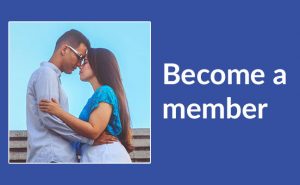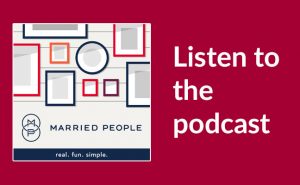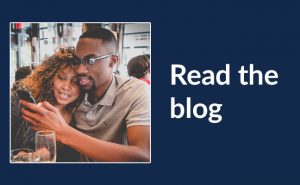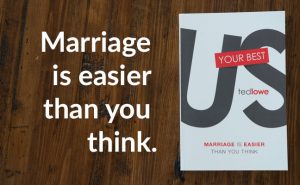Links
Show Notes
 Katie Edwards has been working with junior high students for over 21 years at one of the largest churches in the country—Saddleback Church. Katie and her husband Ron have been foster parents and have three children, two of which they adopted.
Katie Edwards has been working with junior high students for over 21 years at one of the largest churches in the country—Saddleback Church. Katie and her husband Ron have been foster parents and have three children, two of which they adopted.
We’re excited for you to hear from Katie because she and her husband have made their marriage a priority in the midst of the processes of fostering and adoption. They believe that prioritizing their marriage is the best thing they can do for their kids.
Interview with Katie
Tell us about your role at Saddleback Church.
I’m the middle school pastor and I oversee junior high, high school and college now. I oversee all student ministries, but lead from the junior high chair because I love it. I just celebrated my 22nd anniversary at the church.
Tell us a little about your husband, Ron.
He’s an introvert and I’m an extrovert. The church is near the high school where he teaches and he views his classroom as his ministry. We’ve been married almost 20 years.
How did you get started being a foster parent?
We have one biological daughter; she’s a senior in high school. We were really content with having one kid. But when was five or six, Abby came to us said she was lonely. So we started thinking about adoption.
Ron was resistant at first because it seemed messy to him and like it came with a lot of pain and emotion. We started down the international process and that ended, so we were a little lost. A friend suggested looking at fostering to adopt, and Ron said no
I suggested that we should just go to a class and he agreed to go despite his hesitancy. That class changed our life. We heard about all the needs in our county. It was really eye opening and God started to do something in us. When we left, Ron said that he didn’t know if we could walk away and not do anything.
What would you say to people who don’t see the need for being a foster parent?
A lot of Orange County, where we live, is a mirage. There are a lot of beautiful parts, but there’s also plenty of poverty, divorce, and people losing their kids. California just looks sunnier, but there were so many kids in our backyard that needed a home.
At that point, it became an obedience thing. Because there are a lot of horror stories, stigma, and some harsh realities. I don’t know that we would have said yes to it on our own without God.
What are some of those fears and hesitancies?
We just felt unequipped. How do we handle a baby who is detoxing off meth? Or how do you talk to a birth parent who has potentially lost their kids? Are birth parents going to come to our house and cause problems? It felt messy and hard, and I told Ron that I thought we just needed to take some steps forward with open hands and trust that God would close doors if He wanted.
How did you make this decision together?
We were each just taking steps, and trusting that the other person was hearing from God as well. I think I just got there a little faster. As a youth pastor, I was used to loving a kid for a season and then passing them along. It just gave me a different vision.
How did becoming foster parents impact your marriage?
One of the things for Ron and I is that we work really hard to understand each other’s language. What I need is different than what he does. He only needs me to take care of dinner, a date night weekly and something to look forward to. I work hard to do those things for Ron and he’s happy.
During those times we would talk about what we’re scared about and about the positives. We were processing together. There was some give and take there. Ron is OK in the give and take, as long as there are both. That helped us talk and process until we could both say Yes.
What would you say you needed from Ron during that time?
For me, I need him to ask how my day was, I need a date night and I need quality family time so that all our family time isn’t hustle and bustle. He needed to talk about his fears and I needed him to trust me. God brought our paths together and that was a really sweet thing for us—saying Yes to God.
Tell us about when you met Ella.
We’ve had five foster kids and we’ve adopted two of them. Ella was seven years old when she came to us. She was the oldest child we fostered. Before her, we had babies. People don’t realize that there’s a lot of need to foster babies, because people don’t want to take them. Because they fall in love and then have to give them back.
Our hearts grew for birth parents and their journey. God gave us so much goodness with that first foster kid. We had her for 18 months and worked with her birth parents until she went back to them. God’s design is for kids to be with their birth parents and we should be advocates for that. But, if there are kids who don’t have parents, we would love to be considered to be parents.
Ella was our third foster kid and had been in seven homes before we met her. Her mom abandoned her when she was three and she never met her dad. She was found in a camper in the backyard by a friend and bounced around the foster system. She had a lot of unfortunate circumstances, the family before us promised they’d adopt her and then changed their mind.
That’s a lot of what you see—the kids aren’t doing anything wrong but adults all around them are making bad decisions. She was only supposed to be with us for a summer, but we petitioned early on for her to be with us.
How did that circumstance impact Ella?
Ella’s social worker told us that we’d love her because she still had her hope. Around age eight or nine, most foster kids start to lose hope that anyone wants them, but Ella wanted a mom and dad so badly. She was in good spirits but she so desperately wanted to please us.
For example, our family likes frozen yogurt and we eat a lot during the summer. Ella would always order one but only eat the sprinkles. When I asked why, she finally admitted she didn’t like yogurt. She just so badly wanted to part of a family. Her heart was hopeful.
There are so many layers to Ella. There are layers you can’t see that they can’t express. She was so afraid until her court date. Fear and trust were the main things we battled with her. She’s 15 now and we say that we think she almost trusts us. Adolescence really impacted her.
We did therapy with her and at first things were very black and white. When she hit middle school, she started asking why. Why did her mom abandon her? Those things kicked up a notch. We’re walking through them now. But she is awesome and fun and witty and hilarious!
Can you tell us about the other child you adopted?
The first baby we fostered changed Ron. He was no longer allowed to answer the calls, because he would say Yes without talking to me. He wanted to take in all the kids! We had only fostered girls up to this point. Ron asked if we could request a boy.
After that request, they called us within 12 hours with Cooper. He was a newborn. When I picked him up, I just kind of knew he was going to be ours. His birth parents were in really tough situations—drugs and prostitution. They really loved him but they didn’t want to do any of the steps to change their lifestyle. The process took three years to be finalized.
We tried to keep an open relationship with Cooper’s birth parents, because we have seen the effects of Ella having no contact with her parents. That was really hard for her. But his parents wouldn’t show up or sign any paperwork. So two and half years after we got Cooper, we had the final visit with his parents. It was probably one of our hardest moments watching another mother say ‘goodbye’ to her child. We feel honored that God has chosen us to be his parents but we also felt the pain of that situation.
How does adoption give you a sense of priorities in your marriage?
Parenting Cooper and Ella has always had an added layer, but there’s also total normalcy. Fostering and adopting only brought us together and strengthened us. It’s helped us be a little more relaxed about the little things. We’re so thankful for all God has done for us and our kids. But it did bring a relaxed vibe into our marriage. It elevated different pieces of our marriage—the intensity of what we were experiencing drove us closer together.
How did you keep a focus on dating one another despite fostering kids?
We fostered for six years and have taken a break and haven’t done it for three years. But that time really fueled us really just wanting to be together and it has lasted. I feel like that same desperateness for each other has lasted. Sometimes we’ve found ways to get more creative with date nights—we’ll have someone pick up the kids so we can have dinner at home.
What is one simple thing for couples who are considering fostering or adoption?
Our marriage was such a centric part to all this. If we hadn’t been working on that, we wouldn’t have been able to pour out to our kids. My encouragement would be to spend time together and be thoughtful about questions you need answers to. We sometimes have expectations or un-communicated thoughts or feelings. Ask yourself: what does it look like to put that on the table? Give each other permission to be transparent. If we don’t spend time together for our kids, our kids lose.
Closing
Thanks for joining us for the Married People Podcast. We hope you’ll subscribe to the podcast on iTunes and leave a review—they help us make the podcast better.
We want to hear from you! Share with us on Facebook, Instagram or our site. If you want more resources, check out Your Best Us.





